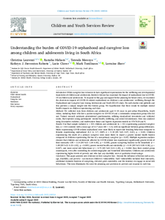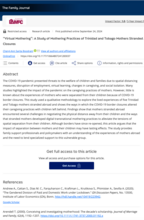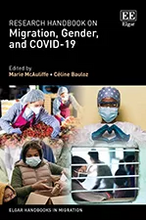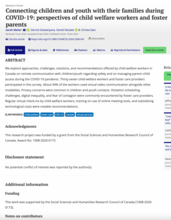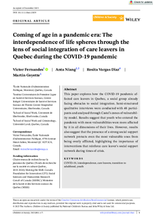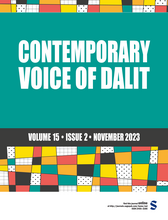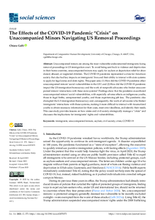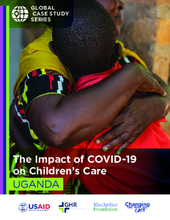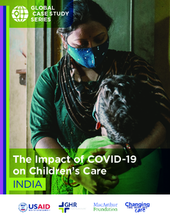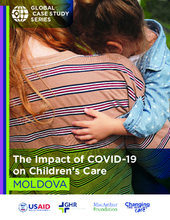This section includes resources related to separated children that may be useful during the COVID-19 pandemic.
Displaying 1 - 10 of 84
This study examined the short-term impacts of COVID-19-related orphanhood on children and adolescents in peri-urban Khayelitsha, South Africa, finding that those who lost a parent or primary caregiver experienced significantly greater mental health burdens, food insecurity, caregiving responsibilities, and engagement in social risk behaviours compared to peers without such loss.
This study used a qualitative methodology to explore the lived experiences of five Trinidad and Tobago mothers stranded abroad and shows the ways in which the COVID-19 border closures altered their caregiving practices with children left behind.
This chapter is part of the "Research Handbook on Migration, Gender, and COVID-19" and explores the gender and youth dimensions of return from GCC States to the East Africa subregion, focusing on three countries: Uganda, Kenya and Ethiopia.
The authors explore approaches, challenges, solutions, and recommendations offered by child welfare workers in Canada on remote communication with children/youth regarding safety and on managing parent–child access during the COVID-19 pandemic.
This paper explores how the COVID-19 pandemic affected care leavers in Quebec, a social group already facing obstacles to social integration.
The article grapples with the tacit interplay of poverty, caste, and gender and its effects on the education of children in a village. It explores how pandemic-induced school closure impacted the life chances of marginalised children during and after the pandemic in the ‘deprived geography’ of rural Madhya Pradesh, India.
This U.S.-based case study provides lessons on how states and civil society strategically manage a “crisis” and discusses the implications for immigrants’ rights and vulnerabilities.
This case study is part of a series of case studies conducted in India, Kenya, Moldova and Uganda over the course of 2020-2022 to share information on how COVID-19 has and is affecting family-child reunification, alternative care placement, and offers recommendations for family- and community-based care of vulnerable children in the context of COVID-19 and future emergencies.
This case study is part of a series of case studies conducted in India, Kenya, Moldova and Uganda over the course of 2020-2022 to share information on how COVID-19 has and is affecting family-child reunification, alternative care placement, and offers recommendations for family- and community-based care of vulnerable children in the context of COVID-19 and future emergencies.
This case study is part of a series of case studies conducted in India, Kenya, Moldova and Uganda over the course of 2020-2022 to share information on how COVID-19 has and is affecting family-child reunification, alternative care placement, and offers recommendations for family- and community-based care of vulnerable children in the context of COVID-19 and future emergencies.

